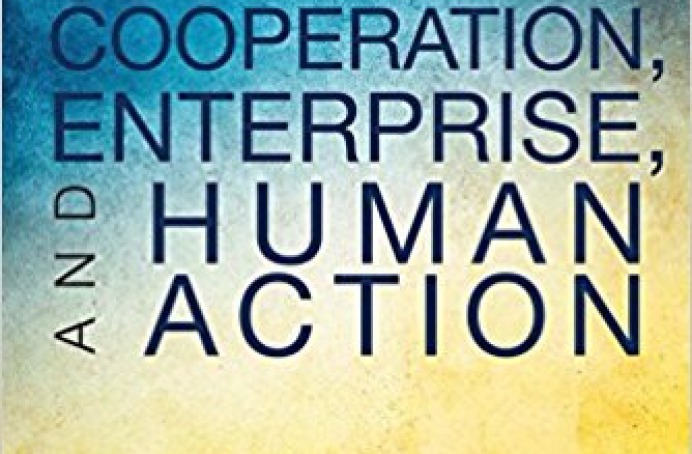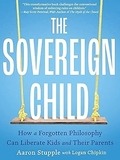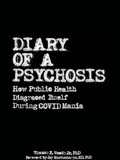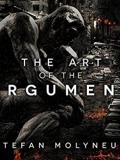Book

Choice: Cooperation, Enterprise, and Human Action
Human Action—a treatise on laissez-faire capitalism by Ludwig von Mises—is a historically important and classic publication on economics, and yet it can be an intimidating work due to its length and formal style. Choice: Cooperation, Enterprise, and Human Action, however, skillfully relays the main insights from Human Action in a style that will resonate with modern readers. The book assumes no prior knowledge in economics or other fields, and, when necessary, it provides the historical and scholarly context necessary to explain the contribution Mises makes on a particular issue. To faithfully reproduce the material in Human Action, this work mirrors its basic structure, providing readers with an enjoyable and educational introduction to the life’s work of one of history’s most important economists.
aboutLiberty Portal
Liberty Portal is your gateway for free markets and free thinking. We aggregate open-sourced content to promote and popularize important people and lessons within the liberty movement.
suggested
Aaron Stupple
The Sovereign Child

Could it really be okay to let kids eat whatever they want? Sleep whenever they want? Watch whatever they want? If kids are completely free to make their own choices, they’ll develop damaging habits that will haunt them into adulthood. Surely parents have a duty to set a few limits.
But what if this conventional wisdom is wrong? What if our deepest ideas of how learning works, how knowledge grows, and the nature of personhood all point to the brute fact that parenting philosophies have missed a critical detail?
In The Sovereign Child, Aaron Stupple explains Taking Children Seriously, the only parenting philosophy that accounts for the fact that children are people—their reasons, desires, emotions, and creativity all work precisely the same way that those of adults do. Because of this, much of the conventional wisdom simply cannot work as intended.
Using examples gleaned from his years as a father of five, Aaron takes a close look at the unavoidable harms of rule enforcement and the startling alternatives available when parents never give up on treating children as if their reasons for their choices matter as much as anyone else's.
Tom Woods
Diary Of A Psychosis: How Public Health Disgraced Itself During COVID Mania

Diary of a Psychosis is different from all other books on Covid: it traces the development of the government response as it happened, bit by bit, and subjects it to relentless scrutiny: did any of it do any good? It thereby preserves some of the crucial day-to-day details that other chronicles have forgotten. And it's those little details of the bizarre behavior of those years that, presented together, preserve for the reader the full horror of the madness of those dark days. The more people know the information in this book, the harder it will be for the ruling classes to do this to us again.
Read more
Stefan Molynuex
The Art Of The Argument

'The Art of the Argument' shocks the dying art of rational debate back to life, giving you the essential tools you need to fight the escalating sophistry, falsehoods and vicious personal attacks that have displaced intelligent conversations throughout the world. At a time when we need reasonable and empirical discussions more desperately than ever, 'The Art of the Argument' smashes through the brain-eating fogs of sophistry and mental manipulation, illuminating a path to benevolent power for all who wish to take it. Civilization is defined by our willingness and ability to use words instead of fists – in the absence of reason, violence rules. ‘The Art of the Argument’ gives you the intellectual ammunition – in one concentrated, entertaining and powerful package – to engage in truly productive, civilization-saving debates. Armed with this book, you will be empowered to speak truth to power, illuminate ignorance, shatter delusions and expose the dangerous sophists within your own life, and around the world.
Read more


